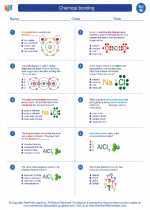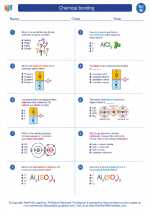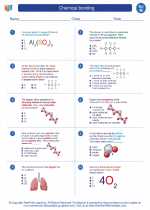Catalysts
A catalyst is a substance that increases the rate of a chemical reaction without itself undergoing any permanent chemical change. In other words, it speeds up a reaction without being consumed in the process.
Types of Catalysts
There are two main types of catalysts: homogeneous and heterogeneous catalysts.
- Homogeneous Catalysts: These catalysts are in the same phase as the reactants. For example, a dissolved metal complex in a reaction solution.
- Heterogeneous Catalysts: These catalysts are in a different phase from the reactants. For example, a solid catalyst in a gaseous or liquid reaction mixture.
How Catalysts Work
Catalysts work by providing an alternative reaction pathway with a lower activation energy. This allows the reactant molecules to more easily overcome the energy barrier and undergo the desired chemical transformation.
Examples of Catalysts
Some common catalysts include:
- Enzymes in biological systems
- Platinum in catalytic converters for automobiles
- Iron in the Haber process for ammonia synthesis
Study Guide
Here are some key points to remember about catalysts:
- Define what a catalyst is and explain its role in a chemical reaction.
- Differentiate between homogeneous and heterogeneous catalysts.
- Describe how catalysts work to lower the activation energy of a reaction.
- Provide examples of common catalysts and their applications.
Understanding the role and function of catalysts is important in the study of chemistry and can have practical applications in various industrial processes.
.◂Science Worksheets and Study Guides Eighth Grade. Chemical bonding
Study Guide Chemical bonding
Chemical bonding  Worksheet/Answer key
Worksheet/Answer key Chemical bonding
Chemical bonding  Worksheet/Answer key
Worksheet/Answer key Chemical bonding
Chemical bonding  Worksheet/Answer key
Worksheet/Answer key Chemical bonding
Chemical bonding  Vocabulary/Answer key
Vocabulary/Answer key Chemical bonding
Chemical bonding 

 Worksheet/Answer key
Worksheet/Answer key
 Worksheet/Answer key
Worksheet/Answer key
 Worksheet/Answer key
Worksheet/Answer key
 Vocabulary/Answer key
Vocabulary/Answer key

The resources above cover the following skills:
Chemistry: Students will use scientific skills and processes to explain the composition, structure, and interactions of matter in order to support the predictability of structure and energy transformations.
Structure of Matter: Provide evidence to explain how compounds are produced. (No electron transfer)
Describe how elements form compounds and molecules.
Physical and Chemical Changes: Compare compounds and mixtures based on data from investigations and research.
Use evidence from data gathered to explain why the components of compounds cannot be separated using physical properties.
Analyze the results of research completed to develop a comparison of compounds and mixtures.